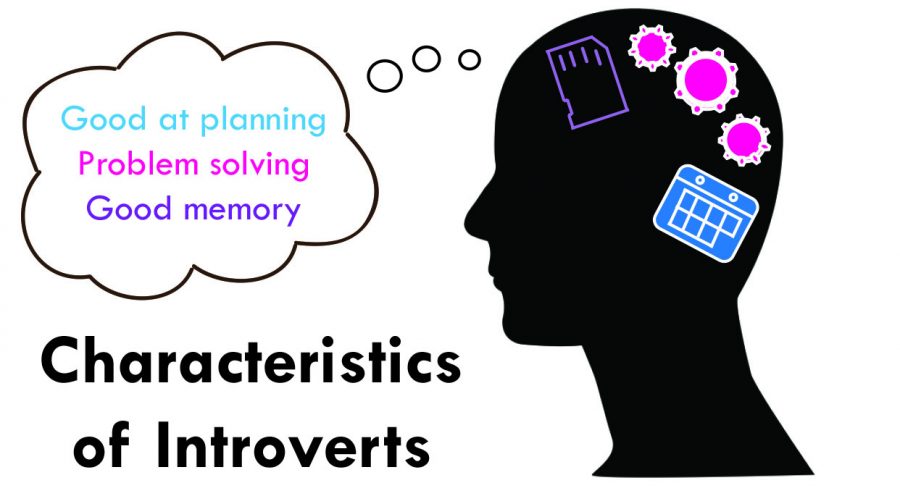Stop shying away from introversion
June 9, 2017
Sitting in kindergarten class on a patch of brightly colored carpet, I groaned at the predicaments of Mondays. On Mondays, I was subjected to the standard mechanical rounds of forced small talk, of “What fun things did you do this weekend, class?” and the inevitable choruses of “soccer game!”, “birthday party!” and “playground playdates!” that followed.
Monday talks meant boredom. I sat quietly in the midst of the shouting and focused on how the letter B on the alphabet sign above me curved upward like an elephant tusk. By Wednesday, I found myself sitting in the principal’s office.
I had difficulty with communication, he said. I was anti-social, he said. I needed ESOL, he said. As a result of what he perceived to be a personality problem, I was told I needed to change. But at five years old, I was just trying to be myself. I hated group discussions, shuddered at the thought of small talk and preferred solidarity over social interaction—a textbook case of introversion.
School systems claim to prize tolerance, yet the threshold of which personalities are seen as promising is ironically narrow. It’s someone who chatters, someone who’s sociable, someone who’s supposedly action-oriented, author Susan Cain writes in her bestselling book, Quiet. Extroverts seem to exude confidence, act spontaneously, and have all the qualities that society deems to be leadership material.
Quiet, on the other hand, is seen as passive, a preference for solitude as a lack of “people skills” and silence as having nothing to say. Introversion, a trait half of the world’s population shares, according to Psychology Today, has become a second-class personality.
I have an entire collection of teachers’ comments and report cards to prove it: “She seems sweet and smart but needs to assert herself more,” my fourth grade teacher wrote. My second grade teacher gave me a “needs progress” rating for my group-working abilities, explaining that “Ivy needs to act more like a leader.”
Society often perceives talkative people as inherently more intelligent and desirable. Indeed, teachers presented with two equally competent students will tend to rate the one who talks more in class as more successful academically despite introverts being just as capable, the American Psychology Association reports.
Granted, the more a person talks, the more easily one’s ideas and opinions can be heard, but introverts have a host of quiet strengths that are just as valuable. It’s crucial to break the stigma surrounding introversion and embrace its benefits.
For example, introverts are better listeners and observers, according to a Wall Street Journal article. Introversion also holds advantages in leadership. A 2010 Harvard Business Review study found that introverted leaders generated better performances and higher profits than their extroverted counterparts. Not surprisingly, some of our most revolutionary figures spanning dramatically different fields are self-proclaimed introverts, including Bill Gates, JK Rowling, Albert Einstein and Charles Darwin.
In education and in society, I’m constantly told that being loud and bold is the only way for my voice to be valued. But introversion doesn’t mean shyness. It doesn’t mean being submissive. It doesn’t mean second-class. Introversion simply means valuing a quiet, private corner in a crowded and buzzing world.







